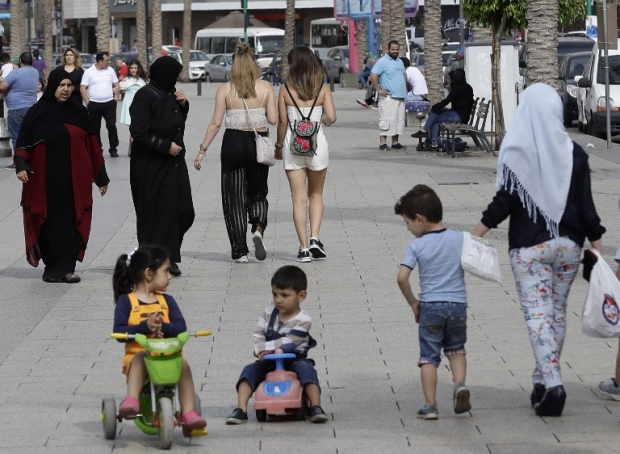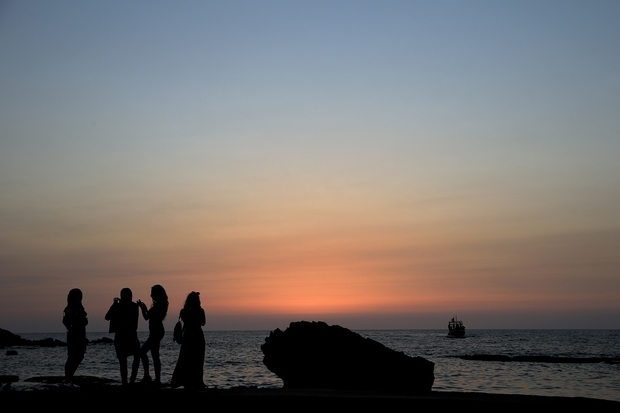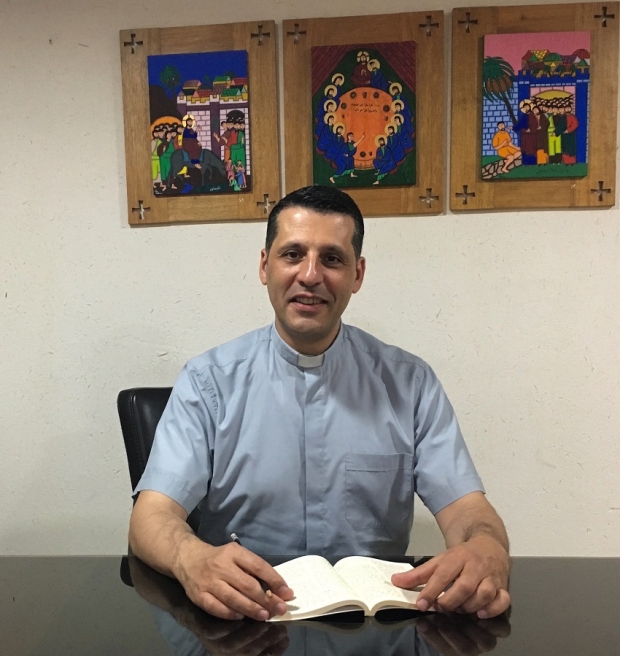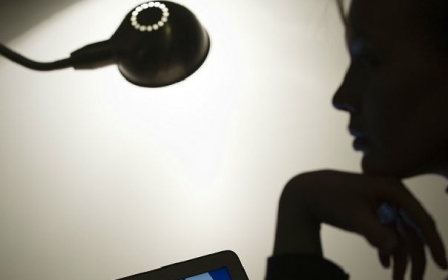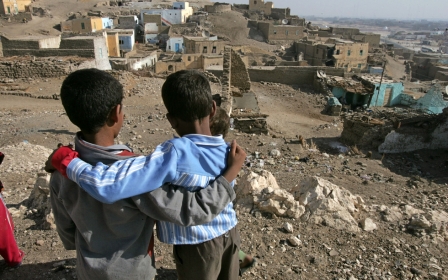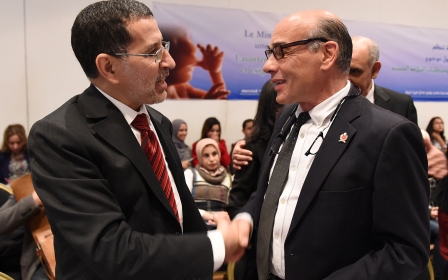Illegal abortion in Lebanon: 'I couldn't comprehend how painful it was'

BEIRUT - Farah has morbid memories of the abortion she had three years ago - but she cannot recall exactly how long the procedure took.
“I just felt like it lasted a whole day, the longest day of my life,” the 26-year-old tells Middle East Eye (like the other women interviewed for this story, she does not give her real name amid fears for her safety).
“I vividly remember the unbearable wait before the operation. Since then, I haven’t been able to stop talking about it...It was gruelling.”
A friend of hers had given her the name and address of a doctor who performs abortions in a private clinic. Farah says that the doctor was not sympathetic to her needs and “was almost smiling during surgery”.
'I just felt like it lasted a whole day, the longest day of my life'
- Farah
Feeling like she was too young to raise a child by herself because she was unmarried, Farah decided to get an abortion when she was three weeks pregnant.
Due to financial constraints, she was not able to afford an anaesthetic for the procedure. According to Farah, it would’ve added an extra $300 to the total cost. Instead, she settled for a Tramadol pill the doctor gave her that did little to numb the pain.
She remembers screaming during the operation. “I couldn’t comprehend how painful it was,” she says.
Following the abortion, Farah experienced bleeding for days. When she tried to reach out to her doctor, she says he ignored her calls. Feeling too scared and ashamed to see another doctor, she endured the bleeding until it stopped without any medical support.
Abortion can result in prison
In Lebanon, abortion is criminalised except when the mother’s health is at risk - even in cases of rape or incest.
Articles 539 to 546 of Lebanon’s Penal Code, which date back to 1943, prohibits abortion. According to the law, a woman who undergoes abortion can be imprisoned for six months to three years, while a doctor who performs the procedure can be sentenced for one to three years.
However, should a pregnancy pose a risk to a woman’s health, the procedure must be certified by two physicians in addition to the one who is actually performing the abortion.
In spite of these risks, many women like Farah manage to get an abortion illegally. Contact information, such as addresses of practitioners, is communicated by word of mouth.
'I couldn’t comprehend how painful it was'
- Farah
In 2016, a Lebanese doctor was arrested for performing approximately 200 abortions on 75 Syrian sex slaves, who were brought into the country by human traffickers. They had promised the women jobs in restaurants or hotels.
‘It was a disaster’
When 28-year-old Carla found out she was pregnant in 2015, she had been seeing different men and was not sure who the father was.
“It was a Friday, the day before Eid. I called the one who most likely was the father. He told me we would fix it on the following Monday. By then, he had asked a friend of his to find us a doctor who carries out abortions,” she recalls.
Carla describes the weekend before her visit to the doctor as "torture".
"All my family was here for a huge barbecue for lunch at my uncle’s place, eating meat and all kind of mezze and I was unable to swallow anything.”
It was like someone was trying to grasp something inside of me but could not do it
- Carla
On Monday morning, Carla pretended she was going to work and met with her friend instead. They drove to Keserwan - a district northeast of Beirut - to meet the doctor. But once there, the doctor informed them he no longer carried out abortions, so they had to resort to plan B.
Carla asked for help from a Beirut-based sexual health centre called Marsa, which provides confidential and anonymous services related to sexual health. The centre advised her on doctors and gave her their locations.
“I did not want any child at this point in my life," she says.
She then went to a clinic operating illegally in Ain el-Remmaneh, south of Beirut, and was told by the doctors there that she was two months pregnant.
Carla remembers the room being “small and messy,” with the presence of the “aspirator” machine. She describes the procedure, which cost her $400, as being extremely painful although she was given anaesthesia.
“It was like someone was trying to grasp something inside of me but could not do it. I was not looking below my waist but I could imagine. I threw up all over the place during the operation, it was such a disaster,” she recalls.
The financial cost of abortion
Many doctors take advantage of the fact that abortion is not legal and set their own fees. On average, an abortion in Lebanon costs between $300 and $1,200, according to several doctors and women.
'I ran to the bathroom as I felt like vomiting and he threw me a pack of sanitary towels. That was the most humiliating part of the process'
- Sarah
Sarah, a 34-year-old Lebanese woman who underwent an abortion 13 years ago, did not have enough money for the operation, so she tried to abort by taking Cytotec, which must be prescribed by a doctor. The misoprostol drug, which is also used to prevent gastric ulcers, can be combined with another drug, mifepristone, to end a pregnancy.
“It was an awful moment,” she says. “The doctor, operating in a private and small clinic, was rushing me to leave right away after the operation. I ran to the bathroom as I felt like vomiting and he threw me a pack of sanitary towels. That was the most humiliating part of the process.”
How the most vulnerable suffer
While women manage to get access to abortion in Beirut in clinics operating illegally, it is not necessarily the same for those in more rural areas, especially vulnerable members of society such as migrants and refugees.
In Halba, a town close to the Syrian border in north Lebanon, Fatima, a 37-year-old Syrian refugee, discovered she was pregnant last February.
'I have two daughters and I sometimes wonder, if one of them got pregnant, what would I do? Force her to get married right away? Or give her the option to abort? I would go for the second option'
- Nadim, gynaecologist
“I did not say a word to my husband because although we are living in dreadful conditions, he still wants more children. I was already two months pregnant,” she recounts.
Fatima has been living with her husband and four children in a modest two-bedroom space, which used to be a garage, for more than two years.
Fatima says that at first she resorted to other means to get rid of the baby as she knew abortion was illegal.
“I jumped everywhere and carried heavy tables,” she says. To no use - she was still pregnant. “One month later, I went to a doctor my friend recommended and he gave me two pills to induce contractions, then he performed the operation.
Fatima stayed home to rest a bit but quickly went back to her job in a second-hand store, as she did not want anyone noticing her absence.
'Do you know Robin Hood? I am like him'
Nadim, a gynaecologist, says he does not perform abortions for the money.
“I see 50 patients every day... Do you know Robin Hood? I am like him,” he boasts.
He insists that he does not have a fixed fee. “It depends on the patients. If some of them can afford it, I will charge them and give the money to the needy.”
Nadim, which is not hsi real name, charges $400 on average for the illegal procedure but does it pro-bono for those who cannot afford it.
Even if the mother was raped, even if she does not have the financial means to have a child, life is a gift
- Father Tony Khoury, founder of "My Right to Live”
The gynaecologist says he generally encourages women to carry on with their pregnancies. “But if someone does not have the financial means to raise a child, is it really a good thing to force her to go through with the pregnancy?” he asks.
“I have two daughters and I sometimes wonder, if one of them got pregnant, what would I do? Force her to get married right away? Or give her the option to abort? I would go for the second option."
He suggests that a change in the law could do much for women, who would no longer be breaking the law with all the risks to their rights and health.
“I don’t dare talk about this with my colleagues, nor with my own brother, he would call me a criminal,” he says.
Pierre, another gynaecologist, says that he falsifies papers pretending the mother’s health is at risk in order to be able to perform the procedure in a hospital. He charges $1,200 for an abortion.
No political will to resolve problem
Most women in Lebanon can only resort to their friends and personal networks for information about their sexual and reproductive health. Now a handful of NGOs in Beirut are trying to present an alternative to this lack of information.
Other international initiatives, such as Women On Web (WoW), which is based in Amsterdam, also offer help: it has a programme whereby it ships abortion pillsto different countries. The only difficulty is that sometimes the parcel gets lost in shipping, according to Nour Saadi, a Syrian doctor working for Wow.
“An average of two Lebanese women get in touch with WoW every month to ask for that pill," she says.
But while abortions may be common in Lebanon, the government continues to turn a blind eye to the issue, with no amendment to the legislation in sight.
Politicians are just a bunch of hypocrites in bed with religious authorities: they follow them, but that does not mean they share their opinions
- Walid Ammar, director general of the Ministry of Public Health
Walid Ammar, director general of the Ministry of Public Health, tells MEE: “There will never be any law legalising abortion, quite simply because the religious authorities will never authorise it. Also, it is not our priority in terms of public health.
“Politicians are just a bunch of hypocrites in bed with religious authorities: they follow them, but that does not mean they share their opinions."
Lebanese politics are complicated. Its government is structured around a power-sharing system, enshrined in its 1943 national covenant, which mandates that Christians have a majority in parliament, the prime minister has to be a Sunni Muslim, the president a Maronite Christian and the speaker of parliament a Shia Muslim.
“Even if the mother was raped, even if she does not have the financial means to have a child, life is a gift,” he says.
Through his NGO, Khoury organises conferences on abortion and he recently wrote to President Michel Aoun - in a joint letter with heads of other religious communities - to ask him to set a National Day of Life.
For Afamia Kaddour, a Geneva-based coach for refugees on schooling and integration issues, “the law remains unchanged for the same reasons as the political landscape remains the same.
“The political priority is to keep the status quo regarding religious communities which, most of the time, consider the oppression of women essential,” she explains.
This article is available in French on Middle East Eye French edition.
New MEE newsletter: Jerusalem Dispatch
Sign up to get the latest insights and analysis on Israel-Palestine, alongside Turkey Unpacked and other MEE newsletters
Middle East Eye delivers independent and unrivalled coverage and analysis of the Middle East, North Africa and beyond. To learn more about republishing this content and the associated fees, please fill out this form. More about MEE can be found here.


